Meet The Team

Dr. Donald Milton
Dr. Milton earned a BS in Chemistry from the University of Maryland Baltimore County (Cum Laude), an MD from Johns Hopkins University and a DrPH (Environmental Health) from Harvard University. He is currently Professor, Maryland Institute for Applied Environmental Health, University of Maryland School of Public Health, College Park, MD, and Department of Medicine, School of Medicine, University of Maryland. He is board certified in Internal and Occupationaland EnvironmentalMedicine and has 20 years of experience in occupational medicine referral practice. He has served onthe editorial boards of Applied Environmental Microbiology, Indoor Air, and BMC Public Health. He is a recipient of the Lloyd Hyde Research Award from Emory University, the Harriet Hardy Award from the New England College of Occupational and Environmental Medicine, and was elected a Fellow of the International Society for Indoor Air Quality and Climate in 2008.He received two “Best Paper” awards for papers on indoor environment and infection risk published in the journal Indoor Air. He holds two patents with one more pending for exhaled breath and bioaerosol samplers and related methods. He previously led NIH, CDC, and IARPA funded projects that developed novel exhaled breath sampling methods and for the first-time characterized aerosol shedding from people infected with influenza. He is current PI of “Contagious Phenotypes of Acute Respiratory Infection: Identification, Characterization, and Biomarkers” funded by the US Defense Advanced Research Projects Agency.

Dr. Barbara Albert
M.D., M.S, Barbara Albert received her medical degree from Pennsylvania State University and completed residency training and a Master's Degree (MPH equivalent) in Epidemiology and Preventive Medicine at the University of Maryland School of Medicine in Baltimore. She has been the Medical Director of the Center for Health Behavior Research at the University of Maryland, School of Public Health since 2006, providing the medical support and oversight for numerous studies, including 6 large, multicenter clinical trials of pharmaceutical products to aid in smoking cessation. Dr. Albert will primarily be helping to supervise the EMIT clinical study of potential influenza cases, particularly the subject visits and clinical data collection.
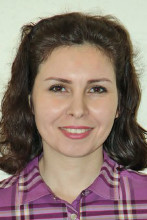
Dr. Somayeh Youssefi
Dr. Somayeh Youssefi earned her BS and MS in Chemical Engineering from the University of Tehran, Iran, and earned her PhD in Environmental Engineering from Drexel University. She is currently a postdoctoral researcher at School of Public Health in the University of Maryland, college Park. Her research interests include environmental issues, renewable energies, aerosols, bioaerosols and exhaled breath biomarkers. Her recent study, Test-It involved design and development of a sampler to collect exhaled breath aerosols. These aerosols that originate from the lung and respiratory tract contain various biomarkers that can inform us about the individual health, as well as his/her environmental exposures. Her current research is about flu transmission, as well as exhaled breath microbiota in smokers versus non-smokers.
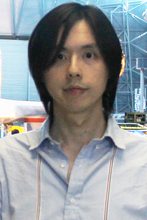
Dr. Sheldon Tai
Dr. Sheldon Tai is a postdoctoral associate at University of Maryland's School of Public Health. He completed formal veterinary training at National Taiwan University, and earned his PhD in comparative medicine and integrative biology at Michigan State University. He is interested in studying how viruses replicate and transmit, how they interact with host cells, and how viruses cause diseases in humans and animals. Some of his previous works include cloning the entire feline herpesvirus genome as a bacterial artificial chromosome and deriving its complete sequence, elucidating the mechanism of HIV-1 genomic RNA packaging, demonstrating the temporal relationship between expression of Marek's disease virus oncogene Meq and progression of lymphoma in infected chickens, and evaluating the efficacy of novel anti-influenza drug candidates.
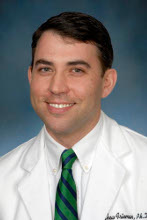
Dr. Matthew Frieman
Dr. Matthew Frieman is an Associate Professor in The Department of Microbiology and Immunology at The University of Maryland School of Medicine. He earned a BA in Biology from Washington University in St. Louis and a PhD in Cellular and Molecular Biology from The Johns Hopkins University. The focus of his lab is on how viruses spread and cause disease using the Severe Acute Respiratory Syndrome Coronavirus (SARS-CoV), Middle East Respiratory Syndrome Coronavirus (MERS-CoV) and the Influenza virus as his model systems. Dr. Frieman will be responsible for heading the molecular detection and analysis aspects of the Prometheus Project.

Dr. Filbert Hong
Dr. Filbert Hong is project manager for Prometheus@UMD, and assists in study coordination and REDCap administration. Filbert had left the world of scientific research for a long time but has since come back. For more than ten years he was Director of Artistic Operations for the National Philharmonic (based at the Music Center at Strathmore in North Bethesda, MD), a $2 million-budget symphony orchestra and chorus. He was orchestra personnel manager, production manager, chorale manager, stage manager, guest artist manager, education coordinator, and music performance librarian. He has also done orchestra personnel and production work with the Takoma Ensemble (based in Takoma Park, MD) and the Concert Artists of Baltimore.
Filbert earned his A.B. in Chemistry and Physics at Harvard College, and his Ph.D. in the Harvard University Biophysics program, studying agonist and antagonist interactions with the nicotinic acetylcholine receptor ion channel, using electrophysiology methods (on whole cells and on detached patches), in the Department of Neurobiology at Harvard Medical School. He has also done work on the isolation of novel kinesin-related proteins and the photoelectric action of bacteriorhodopsin. While he was a graduate student he was Resident Tutor for Music and Biophysics at Lowell House at Harvard College, and managed many of Harvard's student orchestras. For four years he was executive producer for the Lowell House Opera, New England's oldest continually running opera company. He is a violinist and violist, and is studying choral singing with Dr. Ted Guerrant (UMD School of Music).
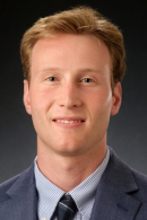
Jacob Bueno de Mesquita
Hailing from Kingston, RI, Jacob completed his undergraduate degree in Human Science with a Certificate in Global Health at Georgetown University. Upon graduating he joined CDC as a Public Health Associate, fulfilling a two-year field assignment embedded at the Union County Health Department in central Ohio. As a field assignee in the Emergency Preparedness and Immunization Programs, Jacob contributed to strengthening community resilience in response to biological hazards, and improving reach of evidence-based immunization and clinical public health services. His research interests include infectious disease prevention and wellness promotion through built environment design strategies. Jacob hopes to continue to serve local public health initiatives globally by focusing on applied, translatable research projects. For two years Jacob has been an instructor of global health for the College Park Global Public Health Scholars Program and he is currently a research assistant working on a study of respiratory disease transmission and identification of contagious biomarkers that focuses on a dormitory population.
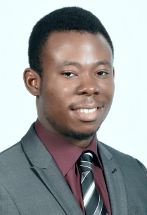
Dr. Oluwasanmi (Sanmi) Adenaiye
Dr. Oluwasanmi Adenaiye earned his Bachelor of Medicine and Bachelor of Surgery (MD Equiv.) from the College of Medicine, University of Ilorin, Nigeria. As a clinical research assistant in the department of Chemical Pathology of University College Hospital Ibadan, he was involved in coordination, design and implementation of a study on Azoospermia Factor in Male Infertile Nigerian Men with Idiopathic Dyspermia. He is a current graduate student at Maryland Institute of Applied Environmental Health. His research interests include Infectious diseases, Environmental and Occupational Health. Dr. Sanmi (his shortened first name) is a member of the clinical research team.

Rhonda Washington - Lewis
Rhonda's career in healthcare started over 20yrs ago with the Department of Defense working at Walter Reed Army Medical Center in the Magnetic Resonance Imaging (MRI) department as a Medical Technician. She assisted in research being conducted with soldiers who obtained Traumatic Brain Injuries (TBI). Her interests in healthcare developed into a passion for public health while working at NIH National Institute of Allergy and Infectious Disease (NIAID) 10 years ago where she worked as a Clinical Research Coordinator. While conducting clinical trials and witnessing the development of vaccines, medical devices, and investigational drugs she realized that this work not only contributed to global health but, it fed her soul as well. Her NIH/NIAID work includes; vaccine development clinical trials for Ebola, HIV, Influenza, SARS, West Nile, Chikungunya, Malaria and AIDS Therapeutic treatment. While working with NIAID she also served as the liaison and host to the international colleagues located in Uganda. She also helped launch the Vaccine Research Center's first Mobile Clinic and has contributed to numerous papers. She is now continuing her career here at the University of Maryland where she has been the Clinical Research Manager for the last year conducting a Smoking Cessation clinical trial sponsored by NIH National Institute on Drug Abuse (NIDA). In the future, Rhonda's plan is to conduct clinical trials that will assist in helping patients with mental health illnesses.

Dr. Jelena Srebric
Dr. Jelena Srebric is Professor of Mechanical Engineering and Director of the Cluster for SustainabilITY in the Built Environment at the University of Maryland (CITY@UMD). For the C.A.T.C.H. study she and her team will be measuring CO2, temperature, and relative humidity within selected residence halls in the Cambridge Community. Dr. Srebric earned a Ph.D. degree from the Massachusetts Institute of Technology in 2000, as well as M.S. and B.S. degrees from the University of Belgrade in 1997 and 1994, respectively. She manages and directly supervises the research activities for approximately $1.5 million annually in externally funded projects. She also teaches and develops new courses on energy and environmental systems in the built environment with more than two thousands of students who took her courses at Penn State, Harvard and University of Maryland. She also presented more than thirty guest lectures at different universities including Stanford, Princeton, MIT, and Columbia. The focus of Srebric’s research group work is on multi- scale modeling of built infrastructure to provide a reliable assessment of how these systems affect occupant population, energy consumption and associated CO2 emissions. These modeling efforts include development of computational tools as well as experimental facilities and sites. Dr. Srebric is the author and co-author of more than hundred publications. She received two research awards and four paper awards from ASHRAE. The International Academy of Indoor Air Sciences recognized her work on indoor air quality with the 2005 Yaglou Award. She was an invited speaker at the National Academy of Engineering’s (NAE) 2011 U.S. Frontiers of Engineering Symposium, and an invited plenary speaker at the Indoor Air 2011 conference.
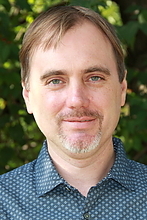
Dr. Todd Treangen
Dr. Todd Treangen is a Research Scientist in the University of Maryland Institute for Advanced Computer Studies (UMIACS) and faculty member in the Center for Bioinformatics and Computational Biology (CBCB). For the C.A.T.C.H. study he and his team are interested in the phylogenetics of the transmitted viruses and other bioinformatics-related issues. Dr. Treangen received his Ph.D. in 2008 in Computer Science from the Polytecnic University of Catalonia, Barcelona, Spain. Over the past 15 years, he spent time as a software engineer, graduate student, postdoctoral fellow, bioinformatics scientist, and principal investigator in eight research labs spanning four different countries. He has been focused on developing bioinformatics software and analysis pipelines designed to facilitate hypothesis-driven biological research. Current research problems that he is interested in include metagenome assembly and multiple genome alignment.
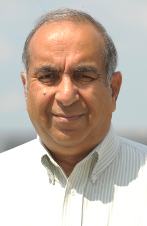
Dr. Ashok Agrawala
Dr. Ashok Agrawala is Professor in the University of Maryland Department of Computer Science at College Park and Director of the Maryland Information and Network Dynamics (MIND) Lab. For C.A.T.C.H., he and his team are developing and implementing the Locus real-time location tracking application for smartphones. Dr. Agrawala is the author of seven books and over two hundred peer-reviewed publications. With Glenn Ricart he developed the Ricart-Agrawala Algorithm, an extension and optimization of Lamport's Distributed Mutual Exclusion Algorithm. He received B.E. and M.E. degrees in Electrical Engineering from Indian Institute of Science, Bangalore, India in 1963 and 1965 respectively; Masters and Ph.D. degrees in Applied Mathematics from Harvard University, Cambridge, Massachusetts in 1970. He started his professional career as Senior Engineer at the Applied Research Lab of Honeywell in Waltham, Massachusetts in 1968 and developed an Optical character recognition machine. He started his academic career at the University of Maryland, College Park in 1971 as Assistant Professor of Computer Science where he rose to the rank of Full Professor in 1982. Recently his work has focused on context-aware pervasive systems.
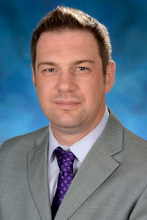
Dr. Emmanuel Mongodin
Dr. Emmanuel Mongodin is Assistant Professor in the Department of Microbiology and Immunology at the University of Maryland School of Medicine (SOM) and the Institute for Genome Sciences (IGS). Dr. Mongodin received his Ph.D from the University of Reims-Champagne Ardenne in France in 2000, where he studied the interactions between Staphyloccus aureus and the human respiratory epithelium. He completed postdoctoral training in the laboratory of Dr. Gordon Archer (VCU, Richmond, VA) carrying out research focused on the mechanisms of acquisition of antibiotic resistance in Staphylococcus aureus and epidermidis, using both comparative genomics and transcriptomics (expression profiling using microarrays) approaches. In 2002, Dr. Mongodin joined The Institute for Genome Research (TIGR; Rockville, MD) as a Staff Scientist and later the J. Craig Venter Institute, where he participated in and led numerous genome-sequencing projects such as Borrelia sp., Campylobacter sp., Listeria monocytogenes, Staphylococcus aureus and Staphylococcus epidermidis, and developed a strong expertise in genomics, comparative genomics as well as metagenomics. Dr. Mongodin's primary research interests focus on the application of microbial genomics, comparative genomics and metagenomic approaches to the study of host-bacteria interactions and the microbial populations colonizing the human body.

Dr. Shuo Chen
Dr. Shuo Chen is Associate Professor of Biostatics at the University of Maryland School of Medicine. He received his B.S. in Electrical Engineering at the Harbin Institue of Technology (China), his M.S. in Mathematics and Statistics at East Tennessee State University, and his Ph.D. in Biostatistics and Bioinformatics at Emory University. He came to the University of Maryland School of Public Health as an Assistant Professor in 2012. His primary research interests focus on developing statistical methods for high-dimensional biomedical data with complex spatial and temporal structure (including neuroimaging data and mass spectrometry data). Currently, he is working on developing statistical and graphical models for network data analysis.

Dr. Jennifer German
Dr. Jennifer German earned her BS in Genetic Engineering from Cedar Crest College, and earned her PhD in Biology from University of Maryland, College Park. Her graduate work focused on the innate immune response to West Nile virus infection, and she has always had a strong interest in viral pathogenesis and host-pathogen interactions. After earning her PhD, she continued working at the University of Maryland as a Research Educator with the First-year Innovation & Research Experience, leading an undergraduate research study monitoring bacterial contamination of the Chesapeake Bay watershed. She joins the CATCH project as the Student Engagement Coordinator, allowing her to merge her interests in viral pathogenesis and engaging undergraduate students in authentic research opportunities.

Dr. Amelia Arria
Dr. Amelia M. Arria, Ph.D. is currently the Director of the Center on Young Adult Health and Development and the Office of Planning and Evaluation at the University of Maryland School of Public Health, and an Associate Professor with the Department of Behavioral and Community Health. Her research focuses on risk and resiliency factors associated with the development of mental health and substance use among adolescents and young adults, as well as the consequences of untreated mental health conditions and substance use. Her most recent area of interest is understanding how these issues can interfere with academic achievement, and what can be done to promote student success. Much of her research has direct relevance to parents, clinicians and policy makers. She has authored more than 150 scientific peer-reviewed publications and is the recipient of numerous grant awards from foundations, and state and federal agencies. She received a B.S. in Human Development from Cornell University, a Ph.D. in Epidemiology from the University of Pittsburgh School of Public Health and completed postdoctoral training at the Johns Hopkins University Bloomberg School of Public Health.

Dr. Chengsheng Jiang
Dr. Chengsheng Jiang is a Research Assistant Professor at the University of Maryland School of Public Health. He has experience in GIS, spatial statistics, spatial sampling design, data analysis, data mining, air pollution exposure assessment, climate change, GPS application in environment health, human behavior classification, large data sets, spatial database and software design and implementation. His current research focus is on evaluating the effects of climate change on public health and environmental justice, and the relation between adverse health effects (eg. cancer risk) and social/economic status and environmental health. He earned his Ph.D. at the National Key Laboratory of Resources and Environmental Information System in Beijing, and did postdoctoral work at the University of California, Irvine.
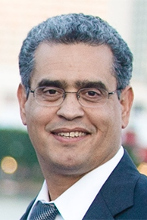
Dr. Adam Porter
Dr. Adam Porter is Professor at the University of Maryland Institute for Advanced Computer Studies, and Executive Director of the Fraunhofer Center for Experimental Software Engineering. His research has focused on developing tools and techniques for large-scale software development: empirical methods for identifying and eliminating bottlenecks in industrial development processes, experimental evaluation of fundamental software engineering hypotheses, and development of tools that demonstrably improve fundamental software development processes, such as software inspection and software testing. His research has been supported by NSF, DARPA, IARPA, NASA as well as numerous industrial organizations. Currently, he is a co-principal investigator on an NSF grant researching how developers of mobile applications reason about ethics and privacy. He is also the creator of a Massive Online Open Course (MOOC) on Android mobile application development that has over one million student registrations from over 200 countries around the world. He received his Ph.D. in Computer Science from the University of California, Irvine.
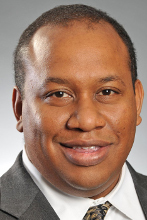
Dr. Sandro Fouche
Dr. Sandro Fouche is Assistant Professor in the Department of Computer and Information Sciences at Towson University, and a Systems Architect with the Fraunhofer Center for Experimental Software Engineering. His research is focused on the implementation and use of tools to improve software quality in distributed systems and ensuring software security. His broad goal is to create new algorithms and systems to simplify the creation, use and security of large, distributed computing systems. Dr. Fouche currently teaches courses in Software Engineering, System Administration, and Cybersecurity. Before entering academia, he worked at a variety of computer and Internet companies including America On-Line and Microsoft, doing software development and system administration. He earned his degrees (B.S. and Ph.D.) in Computer Science at UMD College Park.